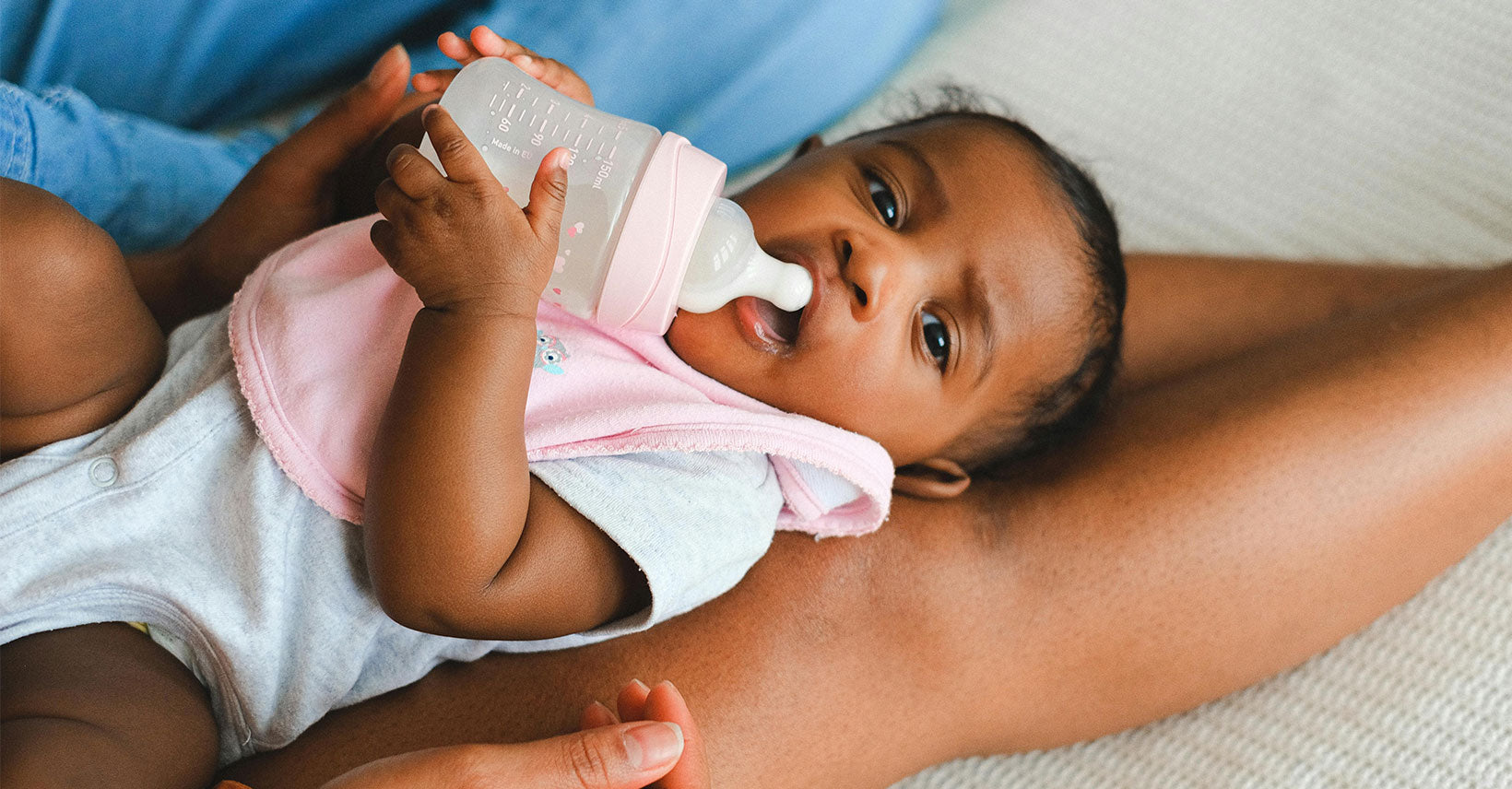


When babies start teething, parents usually notice a change in their eating habits. Some babies may eat less because of the discomfort or pain associated with teething.
Eating less when teething may worry parents, but it is usually only temporary. Teething can lead to swollen and painful gums, making it more difficult for your baby to chew and swallow food comfortably. It's important to monitor their intake and ensure they stay hydrated, but a slight decrease in appetite is usually nothing to worry about.
For more information, please kindly check the below.
Babies usually start teething around six months of age, but there are variations. Some babies may start teething as early as three months old, while others may not begin until they are closer to one year old.
The teething process usually starts with the incisors, also known as the lower central incisors, and then progresses to the other teeth. Every baby is different, so the timing and order of tooth eruption can vary greatly. When teething is about to begin, parents usually notice signs such as drooling, swollen gums, and a tendency to chew on objects.
Below are some symptoms of teething:
One of the first signs parents may notice when their baby is teething is an increase in saliva. The extra saliva may be the body's response to the new teeth pushing out of the gums.
Babies often chew on toys, fingers, or other objects to help relieve the stress and discomfort associated with teething. This behavior helps massage babies' gums and can provide some relief.
The gums around a growing tooth may be swollen and tender to the touch. Parents may see a slight bulge where the tooth is about to break through the surface.
Teething can be uncomfortable for babies, making them more irritable and fussy than usual. This change in mood is usually due to the pain and stress associated with tooth eruption.
Some babies will eat less or sleep poorly while teething. This discomfort can make it difficult for them to eat properly or sleep soundly.
Babies may rub their ears or cheeks when they are teething because the pain in the gums radiates to these areas.
When babies are teething, their eating habits usually change. Many parents will notice that their baby eats less during this period. The loss of appetite is usually due to the discomfort and pain associated with teething, which can make it harder for your baby to chew and swallow.
While this can be worrisome, it is generally a temporary problem that will be resolved once the teeth come in. In the meantime, it's important to keep an eye on their nutrition and water intake.
Soft foods are easier on your baby's mouth when they are teething. Purees, yogurt, and mashed fruits or vegetables are gentler on their sore gums. These foods are less likely to cause additional discomfort than harder solid foods.
Giving your baby chewy teething toys helps soothe their gums. Many teething toys can be kept in the refrigerator to cool them down, thus reducing pain and inflammation.
A clean, cold washcloth can be a simple and effective way to relieve teething pain. Parents can wet the towel, chill it in the refrigerator, and then let the baby chew on it. The cold will numb the gums and ease the pain.
It's important to make sure your baby stays hydrated, especially if they are eating less. Smaller, more frequent meals may be easier for teething babies to tolerate.
Teething cookies are designed to be firm but dissolvable, making them a good choice for teething babies. Teething cookies can be chewed to ease baby's pain and are less likely to irritate gums than other harder snacks.
Teething can be a challenging time for both the baby and parents. Parents must be patient and observe their baby's behavior. If your baby is eating significantly less or seems to be in a lot of pain, consulting your pediatrician can provide additional guidance and support.
Parents should start brushing their baby's teeth as soon as his first tooth comes in. This usually happens when the baby is around six months old, but it can vary from baby to baby. Early brushing helps establish good oral hygiene habits and prevent tooth decay.
Parents can use a small, soft-bristled toothbrush and a small piece of fluoride toothpaste to gently clean their baby's teeth twice a day. It is important to make brushing a routine to ensure that your baby's teeth and gums remain healthy.
In summary, infants usually eat less when they are teething due to the discomfort and pain associated with new teeth coming in. This change in eating habits is usually temporary and will disappear once the teeth come in. Parents can help by offering soft foods, using teething toys, and making sure the baby stays hydrated. It is important to remain patient and observant during this time, and consulting your pediatrician can provide additional support and guidance if problems arise.

Lily Hou
An expert in sleep sack design, is a valued contributor to Kaiya Baby's blog. With a strong background in baby sleep bags and maternal care, she is highly regarded for her professionalism. Lily prioritizes baby comfort and safety in her designs, using high-quality materials. Her insightful articles on sleep bags have been featured in reputable publications and have gained a significant readership. Trust Lily to help you create a comfortable and safe sleep environment for your baby, backed by her proven track record in the industry.
Leave a comment
This site is protected by hCaptcha and the hCaptcha Privacy Policy and Terms of Service apply.